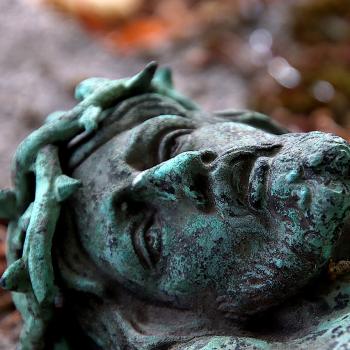Compassionate conservatism was George W. Bush's character and it was his commitment. It was not code or an effort to be clever.
America's evangelical community seems to be wrestling with the better and worse ways of bringing faith and politics together. You're thoroughly familiar with many figures from the "Religious Right"—people like Jerry Falwell, whose funeral you attended on Bush's behalf. If you could reflect on the heyday of the Christian Coalition and figures like Robertson and Falwell and James Dobson, were there some errors or excesses in the previous generation of the Religious Right that conservative Christians today would be wise to avoid?
When I joined the Bush campaign in 2000, there was an extraordinary group of faith leaders, most of them evangelicals, some Catholic, who had been a part of the rise of the New Right. They were Paul Weyrich, James Dobson, Bill Bright, Chuck Colson, Adrian Rogers, Jerry Falwell, Pat Robertson, and a few others.
By the time the first Bush campaign was underway, many of these men were in the waning years of their careers or their lives. I look back in The Man in the Middle at that moment, just eleven years ago, and I realize that this entire generation—with a couple very important exceptions—has died or retired. Personally, I don't believe that we will see, in this new century, that kind of paradigm recreated.
This does not mean that conservative Christianity is any less important in the political sphere. If anything, it remains as important, or more important today than before. There is a new generation of socially conservative leaders who have great influence in their own spheres. But that model with Falwell and Robertson and others, I don't believe that will be recreated. There are a host of reasons for that, but in large measure it's because the very cultural trends and battles of the 1960s, which brought that group of men and some women to the fore, that cultural battle remains but it has been broadened.
Attendant to that, American evangelicalism in its breadth and depth is interested in a wider variety of issues. I personally continue to believe that the sanctity of life and the debate we're having in the country over marriage remain the two most important issues amongst conservative Christians who are actively engaged in the political or public policy process. But American evangelicalism is more decentralized and more diverse than it's ever been.
Is there any legitimacy to the criticism that evangelicalism at the height of the Christian Coalition era became a colony of the Republican Party?
Let me answer that very directly. I write about this in The Man in the Middle. When Jimmy Carter was campaigning for president, and he said that he was a born-again Christian, evangelicals knew exactly what he meant but many people in America, remarkably, had no idea what he was talking about. American evangelicals had broadly stayed out of politics until the mid or later '70s.
Many evangelicals who were already waking up to policy and politics in the early part of the sexual revolution could, for the first time, identify with a born-again Christian running for office in Jimmy Carter. After about two years, however, there was great disappointment with the Carter Presidency. When you marry that to the state of the economy, a lot of American evangelicals who had come into politics and were disappointed by what they saw began to look at the field. Later, Ronald Reagan would famously say, to a very important group of social conservatives, "You can't endorse me, but I endorse you." Many conservative Christians and Catholics knew what he meant.
There was a rather dramatic shift from the mid-'70s and the first Carter campaign for the White House to the 1980 election. Certainly as the Reagan presidency got underway, there was a melding taking place. That became the Reagan coalition: one stool with three legs, foreign and security conservatives, economic conservatives, and the social conservatives. In many other developed or industrialized countries of western Europe, the notion of conservatism often does not include social conservatives, but in America it became a very unique brand. I think in one important sense, that coalition has held together. I say in the book that American conservatism is not a political program; it's a way of life. And it's a big house. There are groups or interests within American conservatism that do not agree. But for political purposes, there is a congealing that does take place. And heretofore that congealing in the contemporary presidential era has been what we think of historically as this Reagan coalition.
Has it been good for the church that social conservatives have congealed or aligned themselves with economic and foreign policy conservatives?
Most of the conservative Christian leaders who I worked very closely with, and write about in the book, were very comfortable differentiating the role of the church and the role of the state. They by and large adopted the view that Chuck Colson set out in his book Kingdoms in Conflict, that a Christian living in America was a citizen of the United States but also a citizen ultimately of the Kingdom of God.





